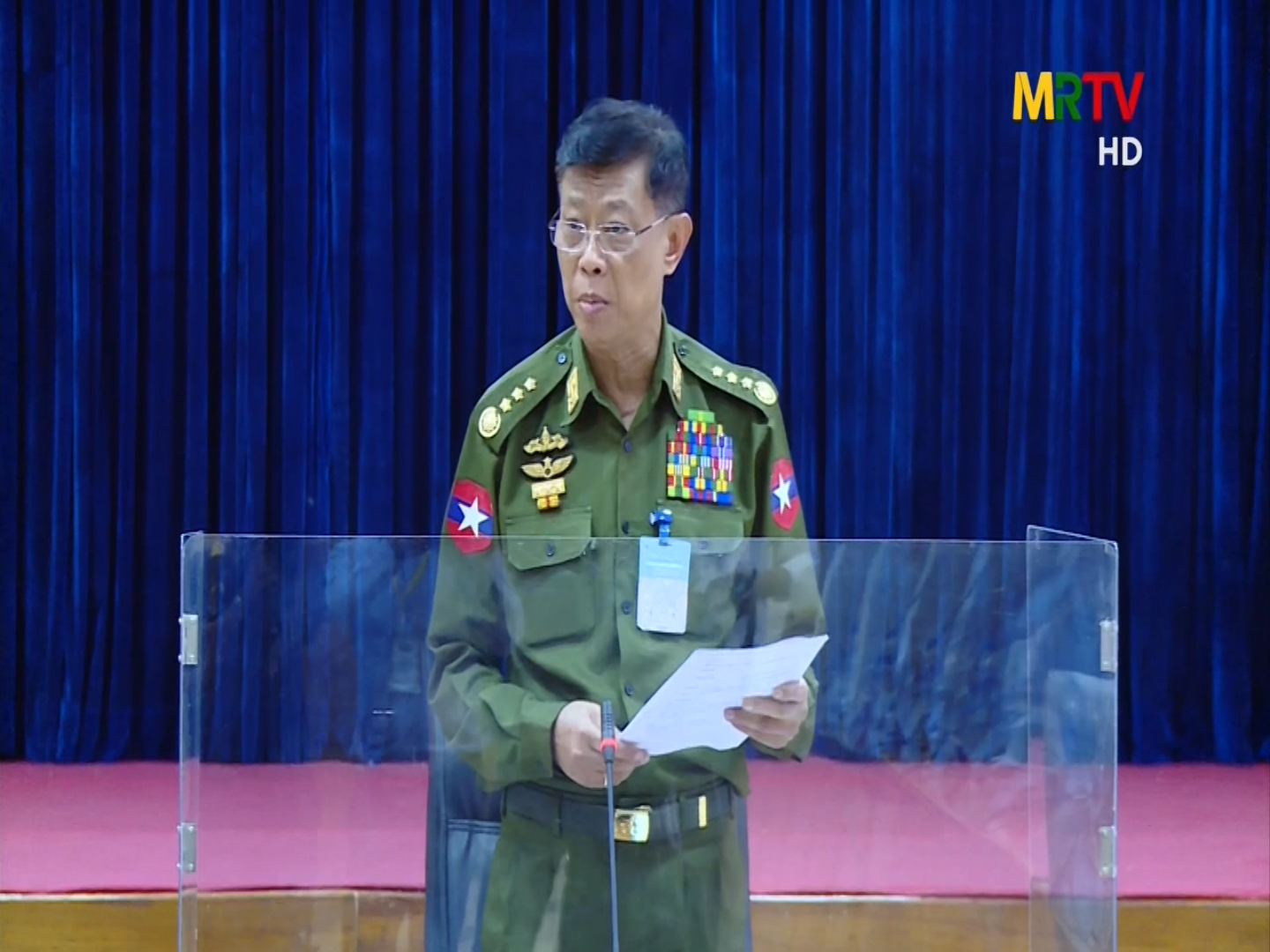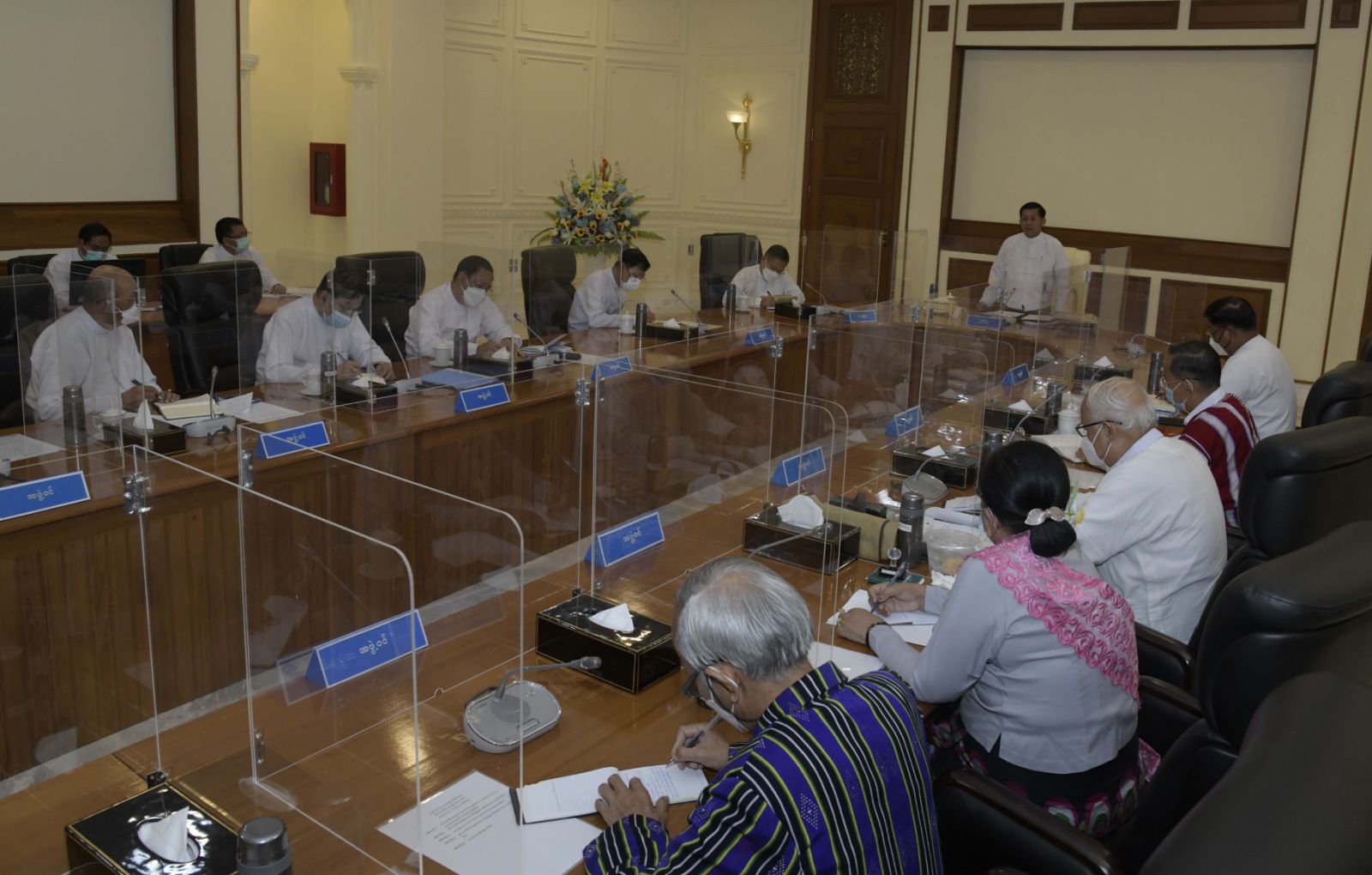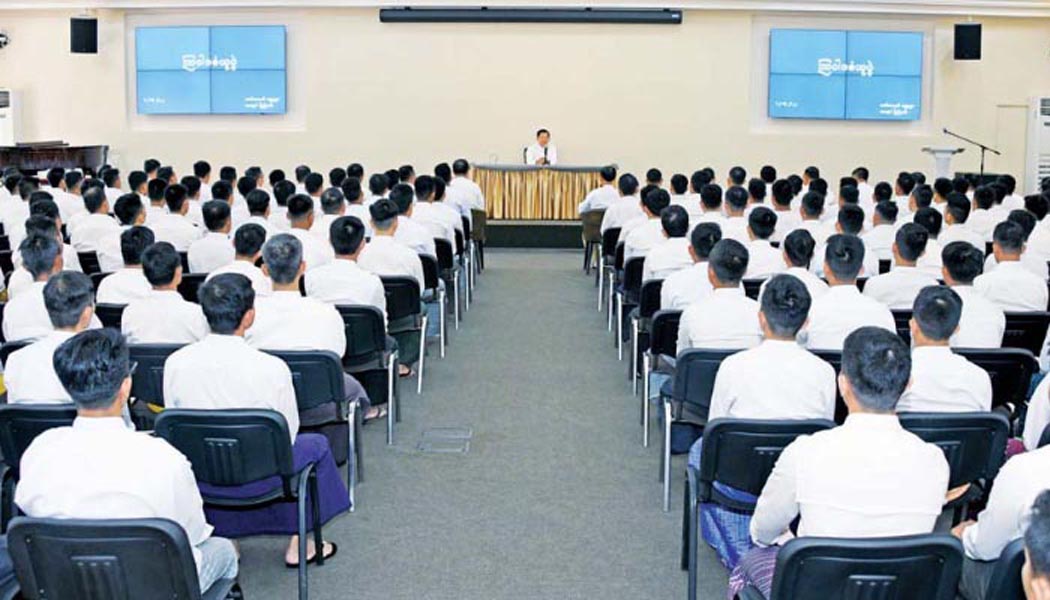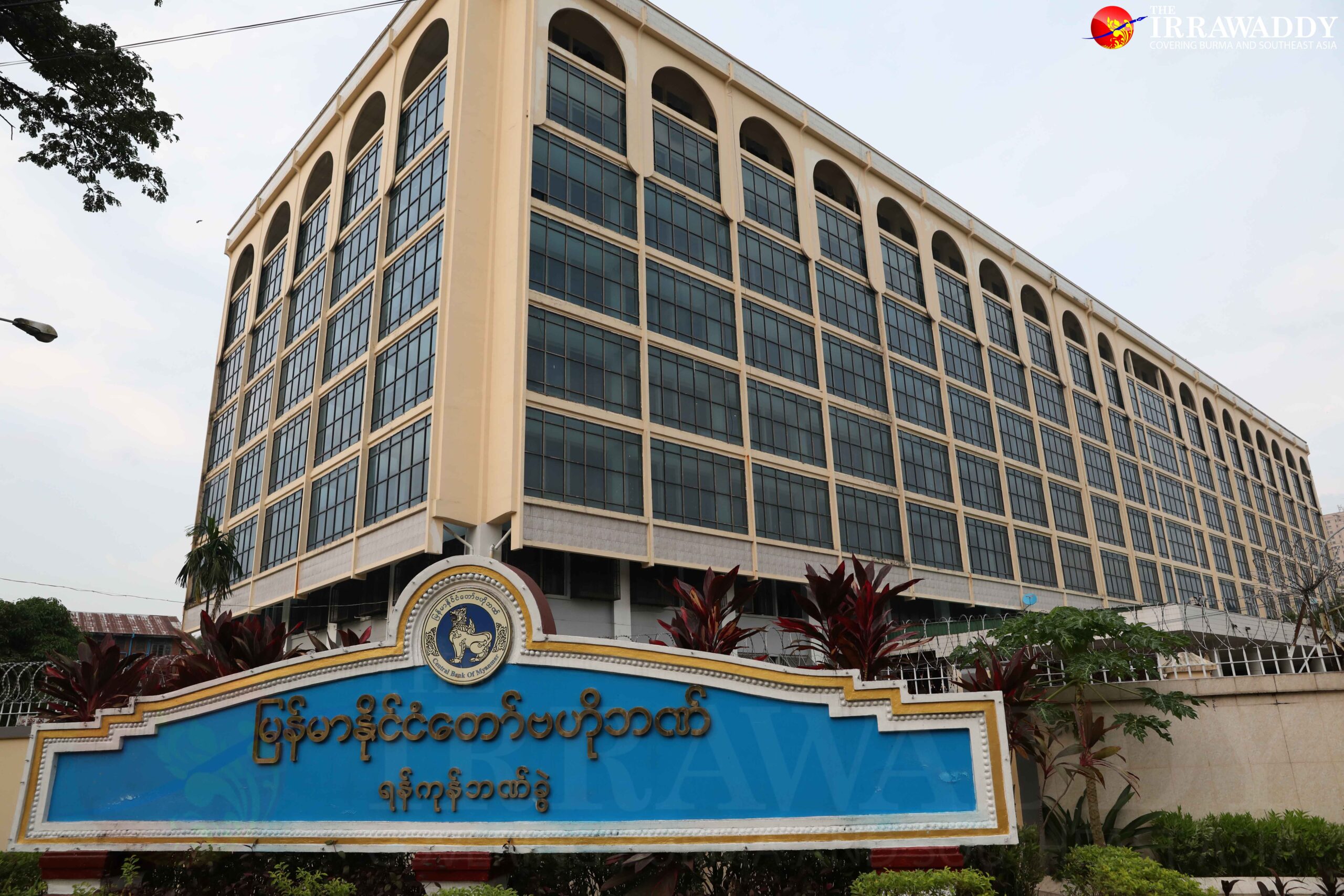
Coup leader’s electric vehicle fantasy indulged
The military regime still can’t supply electricity round the clock, even in the commercial capital Yangon, but that hasn’t stopped it from forming a national-level committee on electric cars in a bid to fulfill one of Min Aung Hlaing’s most persistent fantasies.
According to the July edition of the Gazette of the Republic of the Union of Myanmar, the national committee leading the development of electric vehicles and related businesses, chaired by Defense Minister General Mya Tun Oo, a member of the regime’s governing body the State Administration Council (SAC), was formed in June.
While it remains unclear when the electricity supply will be restored to normal, Gen. Mya Tun Oo and the committee’s vice-chairman, ex-admiral Tin Aung San, who is also an SAC member and the regime’s transport minister, have even drawn up plans to promote their “castle in the air” project.
These include exempting toll and parking fees for electric vehicles; setting up charging stations at shopping centers, bus stops, and parking facilities; and building separate roads and parking facilities for the vehicles.
In April, Omni Focus Co. Ltd., owned by grandsons of the late military dictator Ne Win, presented their plans for the operation of electric buses to Tin Aung San. Meanwhile, automakers including Japan’s Suzuki and Korea’s Hyundai have suspended operations in Myanmar due to the regime’s misguided economic policies.
Min Aung Hlaing’s economic lessons

While Myanmar has to import almost everything from medicines to fuel, junta chief Min Aung Hlaing, like his predecessors, eyes building the economy based on agriculture and livestock farming. Myanmar has rich agricultural land and abundant rivers and creeks, the junta boss boasted at a meeting of his regime’s governing organ, the SAC, on Thursday.
Myanmar’s economy has been in recession due to the COVID-19 outbreak and post-coup turmoil. The rise in the cost of living is taking a heavy toll on people, with the prices of fuel, cooking oil and medicines—all of which Myanmar has to import—having shot up. Unemployment has increased and so has the crime rate. To make matters worse, the regime’s economic policies are forcing local businesses to halt their operations and foreign companies to leave the country, and commodity prices rose even further when the regime introduced its latest restrictions on US dollars.
While the junta boss claims that Myanmar has rich agricultural land, the sown acreage of paddy has significantly declined this year because of the political instability and increased fertilizer and fuel prices.
The outlook for Myanmar’s economy remains weak, says the World Bank, and the country leads the Fragile State Index issued by the US-based Fund for Peace.
Junta chief’s nasty habit: slamming the NLD

More than one year after the military coup, it has become increasingly obvious that Min Aung Hlaing is really good for nothing except killing people, harming the country and speaking ill of the National League for Democracy (NLD). Whenever he visits military units around the country, he never fails to speak ill of the ousted ruling party. But recently, he even took the opportunity to do so on foreign soil. During his recent visit to Russia, he brought traditional Myanmar snacks including Mohinga along on his special MAI flight to hand out to military personnel undergoing training in the country. The snacks were shared around, and the Mohinga was cooked and fed to the trainees, according to an article featured in the July 21 issues of the junta-run newspapers.
Min Aung Hlaing has had to rally the Myanmar military, whose fighting capability and morale are in decline. Even though he was in Russia, he ordered local commanders back home to hold feasts for their respective units in a display of fatherly benevolence. In Russia, over 120 Myanmar military trainees were fed the Mohinga and traditional snacks, along with Min Aung Hlaing’s narrative of how the NLD government broke laws and rigged the 2020 general election, making it necessary for the Myanmar military to seize power and “save the country”.
Soldiers play bankers at CBM

As Myanmar grapples with a foreign currency crisis thanks to the regime’s financial mismanagement, six lieutenant colonels were appointed deputy directors at the Central Bank of Myanmar (CBM) in June, according to the recently published Union gazette.
It has become customary after coups in Myanmar for military personnel to intervene in sectors they know nothing about. Myanmar’s economy has failed many times since the 1962 coup because of military meddling in the economic and financial sectors.
Recently, the junta-controlled CBM ordered companies and individual borrowers to suspend repayments of foreign loans, both of interest and principal.
Moreover, the regime has seized US dollars from companies registered with the Myanmar Investment Commission by ordering them to convert all their foreign currency into kyats. To preserve the country’s dwindling foreign currency reserves, it has also imposed restrictions on import permits.
All those measures will only further worsen Myanmar’s economy, which has been spiraling downward since the coup, and drive more people into poverty. The World Bank said in its latest report that the recent policy shifts have added to the challenges for businesses. Burdensome trade license requirements, the abandonment of the managed float exchange rate regime, and the imposition of foreign currency surrender rules have resulted in shortages of key imported inputs and inhibited exporters, it said.

















